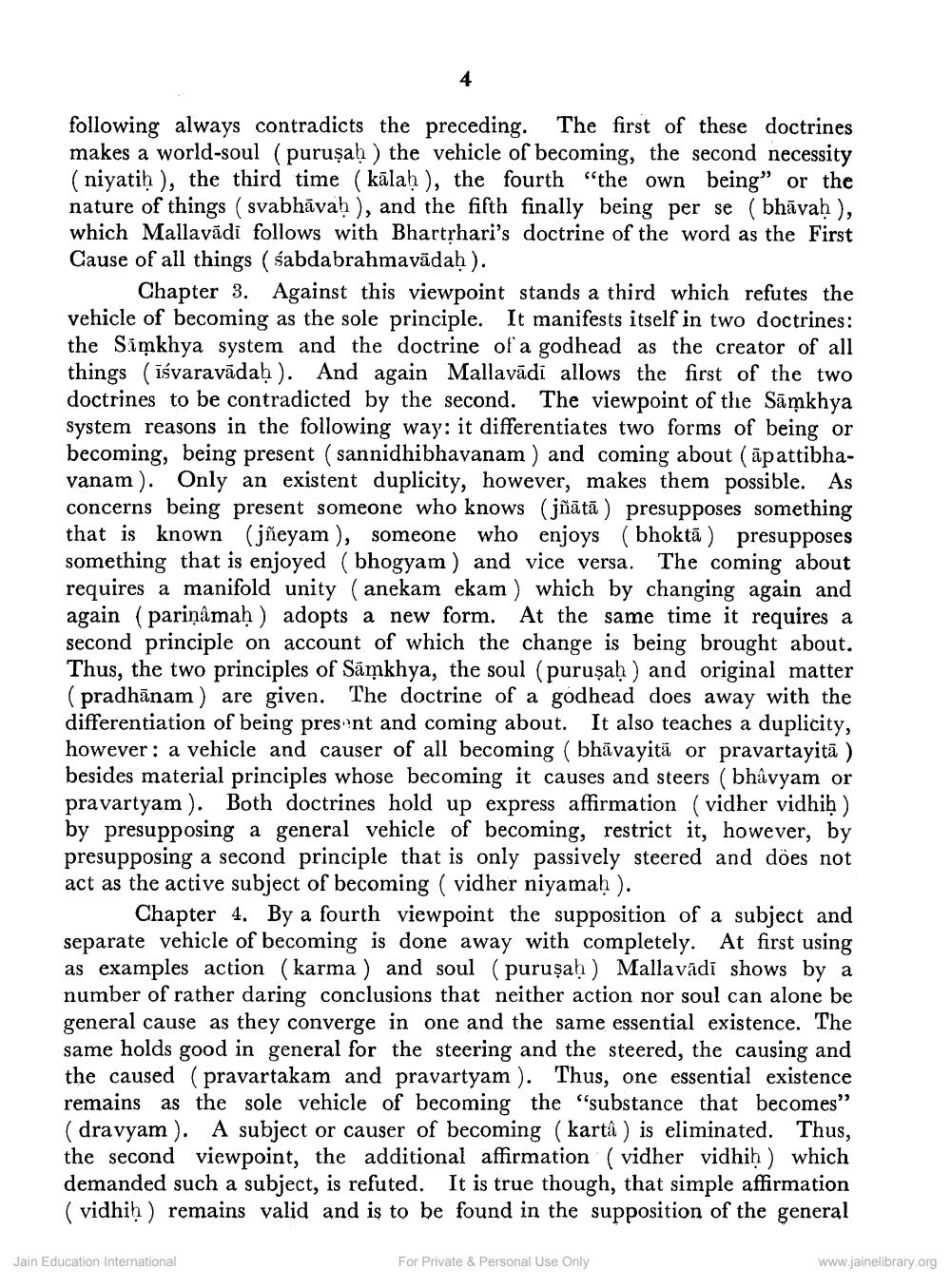________________
following always contradicts the preceding. The first of these doctrines makes a world-soul (puruṣaḥ ) the vehicle of becoming, the second necessity (niyatiḥ ), the third time (kālah ), the fourth “the own being" or the nature of things svabhāvah), and the fifth finally being per se (bhāvah ), which Mallavādi follows with Bhartrhari's doctrine of the word as the First Cause of all things sabdabrahmavādah).
Chapter 3. Against this viewpoint stands a third which refutes the vehicle of becoming as the sole principle. It manifests itself in two doctrines: the Simkhya system and the doctrine of a godhead as the creator of all things (iśvaravādaḥ). And again Mallavādi allows the first of the two doctrines to be contradicted by the second. The viewpoint of the Sāmkhya System reasons in the following way: it differentiates two forms of being or becoming, being present ( sannidhibhavanam ) and coming about (āpattibhavanam). Only an existent duplicity, however, makes them possible. As concerns being present someone who knows (jñātā) presupposes something that is known (jñeyam ), someone who enjoys (bhoktā) presupposes something that is enjoyed ( bhogyam ) and vice versa. The coming about requires a manifold unity (anekam ekam ) which by changing again and again (pariņâmah) adopts a new form. At the same time it requires a second principle on account of which the change is being brought about. Thus, the two principles of Sāmkhya, the soul (puruṣaḥ) and original matter (pradhānam ) are given. The doctrine of a godhead does away with the differentiation of being pres.-nt and coming about. It also teaches a duplicity, however: a vehicle and causer of all becoming (bhāvayitä or pravartayitā ) besides material principles whose becoming it causes and steers (bhavyam or pravartyam). Both doctrines hold up express affirmation (vidher vidhiḥ ) by presupposing a general vehicle of becoming, restrict it, however, by presupposing a second principle that is only passively steered and does not act as the active subject of becoming ( vidher niyamaḥ).
Chapter 4. By a fourth viewpoint the supposition of a subject and separate vehicle of becoming is done away with completely. At first using as examples action (karma) and soul (puruṣaḥ) Mallavādi shows by a number of rather daring conclusions that neither action nor soul can alone be general cause as they converge in one and the same essential existence. The same holds good in general for the steering and the steered, the causing and the caused (pravartakam and pravartyam ). Thus, one essential existence remains as the sole vehicle of becoming the substance that becomes” (dravyam). A subject or causer of becoming (kartâ ) is eliminated. Thus, the second viewpoint, the additional affirmation (vidher vidhih) which demanded such a subject, is refuted. It is true though, that simple affirmation ( vidhih) remains valid and is to be found in the supposition of the general
Jain Education International
For Private & Personal Use Only
www.jainelibrary.org




